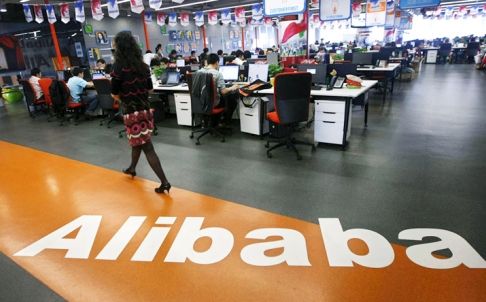 Mumbai-based Meru Cabs is in talks with Chinese e-commerce giant Alibaba for a strategic investment.
Mumbai-based Meru Cabs is in talks with Chinese e-commerce giant Alibaba for a strategic investment.
Alibaba executives have held discussions with Meru and talks are likely to progress in the coming weeks for a possible stake buy in Meru by the Jack Ma-led Alibaba.
The development comes at a time when Ma is expected to visit India by the end of this month, his third trip to India in less than six months.
Meru Cabs CEO Siddhartha Pahwa confirmed that the cab aggregator is in talks with Alibaba without divulging further details.
According to sources, for Alibaba to check in at Meru, IVF (India Value Fund) would sell its stake in one of the pioneers in the cab aggregator space in India. IVF at present has over 80 per cent stake in Meru Cabs and it recently infused $50 million (over Rs 300 crore).
It is learnt that Meru is looking at a valuation of around $400 million.
Alibaba is already an active player in China's cab aggregation space.
China's largest taxi booking app, the Tencent Holdings-backed Didi Dache, merged with its biggest competitor Kuaidi Dache, which is backed by Alibaba, Softbank and Tiger Global, making the $6-billion Chinese transportation giant the biggest globally after Uber.
Interestingly, Alibaba seeking a stake in Meru Cabs comes after Softbank became a strategic investor in domestic cab aggregator Ola last year. Softbank is a key investor in Alibaba.
Japan's Softbank infused fresh funds worth $210 million last year into Ola, valued at over a billion dollars.
According to sources close to the development, both the parties are approaching the closure of the deal at a handsome pace in the coming weeks but the closure timeline of the deal being discussed could not be independently verified. Pahwa did not comment on the timeline.
Meru is also looking to raise about $100 million to feed its inorganic growth needs as it is facing intense competition from Ola and Uber. Ola already has the largest network in India and after the acquisition of TaxiForSure for $200 million, Ola is looking to cement its leadership position in the market. Uber, which has been facing some trouble of late, has reduced fares significantly to corner as much market share as possible.
Meru has a fleet size of over 15,000 cabs in the country and is eyeing a presence in 40 cities by the end of the year.
The company reported its first profit in 2013-14, of Rs 3.6 crore (Rs 36 million). In 2012-13, it had a loss of Rs 31.1 crore (Rs 311 million). As of March-end last year, the company's accumulated loss stood at Rs 215.24 crore (Rs 2.15 billion).
Goliaths such as Alibaba keen to invest in the sector does not come as a surprise as cab services is a hyper local model where building the supply chain takes a lot of time and investment.
Hence, investors with very deep pockets and a long-term horizon will be able to sustain, see through the cash burn and create a profitable business.
Lately, India's taxi services market, despite its financial stress, has received increased attention from global investors, primarily because of the fact that the 'radio taxi' model has emerged as the fastest-growing and most reliable form of public transport for the world's second-largest population.
There are about 600,000 taxis in India, generating combined annual revenue of about Rs 11,000 crore (Rs 110 billion).
At present, there are 19 radio taxi operators in the country, including Mega Cabs, Easy Cabs, Meru Cabs, and Tab Cabs, according to the Association of Radio Taxis. These operators run over 25,000 cabs across India.












 © 2025
© 2025